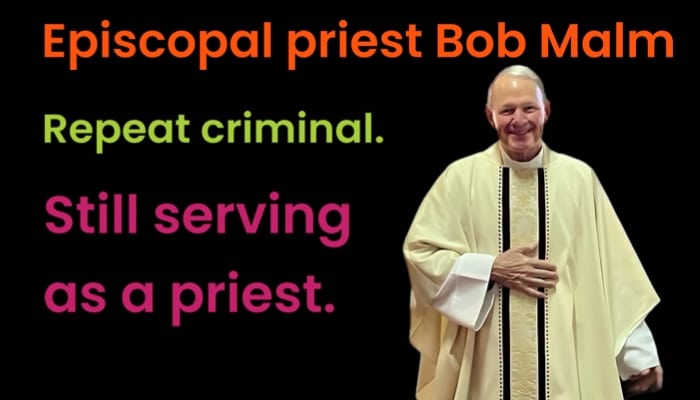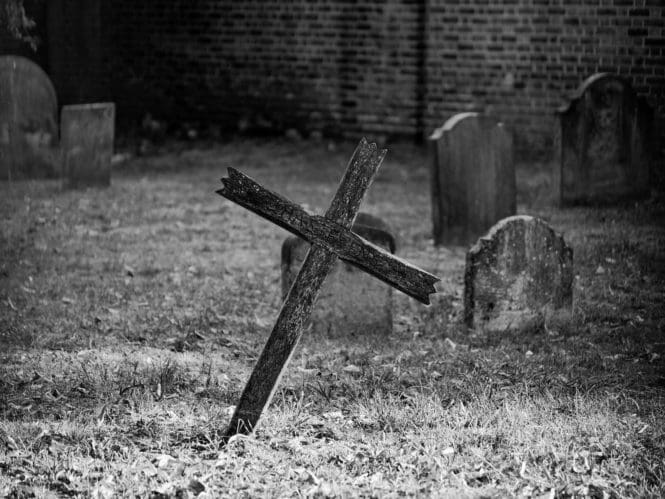It’s long been a fundamental tenet within private companies that illegal conduct by an employee can and should result in immediate termination. Yet the Episcopal Church, which far too often treats Title IV, the clergy disciplinary canon, as the only solution to clergy misconduct, almost invariably ignores criminal conduct and other egregious misconduct by clergy.
This de facto policy of disregarding criminal conduct by clergy undercuts the Episcopal Church’s reputation, erodes its claim to moral authority, and causes far too many members to turn their backs on the church.
This situation needs to end, and it needs to end now.
Private sector solutions
How do private, for-profit companies deal with allegations of criminal conduct by employees?
One recruiting firm says:
Any criminal behavior within or outside the workplace that jeopardizes the company’s reputation or violates a basic code of conduct can lead to immediate dismissal, including physical violence, discriminatory language, theft, fraud, embezzlement, or any other criminal act directly impacting the company or its employees…Criminal behavior directly linked with the business is usually a termination no-brainer. (Emphasis added.)
Similarly, general misconduct is grounds for termination and includes, but isn’t limited to:
- discrimination
- harassment
- bullying
- intimidation
- insubordination
- misuse of organizational funds
- falsifying business records
Timing is also important. Moving quickly may limit liability, protect employee morale, and prevent the development of a hostile workplace. Indeed, failure to promptly address HR issues can result in legal liability for an organization.
Says HR website Indeed.com:
Managing employee behavior and ensuring your workplace is safe and welcoming are some of the most important responsibilities of being an employer….Deal with misconduct in a timely manner to limit your liability as an employer for the offending employee’s actions. Not acting when you become aware of misconduct could result in employees thinking that their behavior is okay and committing further infractions. Delaying an investigation can allow a hostile work environment to develop and make any possible victims of misconduct feel disrespected.
On paper, of course, this sounds very much like the promises the Episcopal Church makes via the Baptismal Covenant and the tons of resolutions that emerge from the triennial General Convention.
Unfortunately, the reality is far different.
The Episcopal Church is an example of how not to address HR issues
As we’ve documented countless times in this publication, the Episcopal Church is rife with insubordination, harassment, sexism, bullying, and even illegal conduct by priests. In many cases, bishops diocesan ignore the issues.
For example:
- Bishops Alan Gates, Susan Goff, Gayle Harris, Shannon Johnston, Jennifer Brooke-Davidson, Todd Ousley, and PB Michael Curry all have ignored Episcopal priest Bob Malm‘s repeated criminal conduct, which includes misdemeanor and felony activities. Even now, nine years after Malm’s first criminal actions, the Diocese of Virginia has neither referred the allegations to law enforcement nor suspended Malm, who serves as interim rector of a small, dying church in Massachusetts. Nor has the Diocese ever addressed the church funds that went missing during Malm’s tenure. (Disclosure: Much of Malm’s illegal conduct was directed at AW editor Eric Bonetti and his family.)

Episcopal priest Bob Malm, a repeat criminal - Alan Gates ignored allegations of sexual harassment and retaliation involving Church of the Advent rector Douglas Anderson until he could no longer do so, then ran the clock out on a secret Title IV process that basically paid Anderson for almost two years for doing nothing. Additionally, DioMass had vestry members sign NDAs, even as he signed off on arrangements to pay Anderson’s legal fees from parish money, amounting to almost $1 million.
- Bishop Paula Clark continues to ignore allegations of perjury by Episcopal priest Will Bouvel.
- Bishop Brenda Curry ignored repeated complaints about Episcopal priest Richard Losch, who faces criminal charges for allegedly raping a boy. Additionally, the Diocese of Louisiana lied to law enforcement about Losch, saying he had no access to children and was not an active priest — despite the fact he served two parishes and lived across the street from an elementary school. Curry only took action when Losch was indicted.
- Brenda Curry continues to ignore allegations that Episcopal priest Stephen McWhorter sexually harassed an adult church employee and made advances toward a male youth while serving in Pittsburgh, PA. Indeed, Curry must be okay with these issues, since McWhorter serves on the Alabama Commission on Ministry.
- The Diocese of Southern Ohio, while moving forward with a Title IV case against priest Daniel McClain, does not appear to have requested a criminal investigation or criminal charges against McClain for allegedly using church funds to cover personal expenses.
- The national church continues to shrug off requests for a pastoral response in the Title IV case against corrupt Episcopal bishop Santosh Marray, even as it recommends conciliation. Sorry, folks, but that’s a little like trying to quench a nuclear bomb blast with a watering can. Not only is Marray spectacularly ill-suited to ministry, but he continues to threaten to retaliate against the complainants in the matter. Could someone please call a spade a spade and save us all a lot of suffering by sending this malevolent character packing?
Some situations go further. For example, the national church is still slow-walking a Title IV complaint that alleges that Dallas Bishop George Sumner has engaged in retaliation and cover-up involving Rich Daly, a priest who brought forward claims of sexual harassment involving someone closely connected with St. James Texarkana.
Moreover, the Diocese of Dallas refuses to address the corruption of Texarkana rector David Halt, who pulls down a six-figure salary. His feckless indifference to his obligations as a priest is causing a meltdown in his parish.
A consistent theme in those few cases in which the church is doing anything to address these issues is that Title IV is moving slowly–sometimes taking two years or more.
Meanwhile, the clergy in question deploy their flying monkeys, cause discord in their faith communities and among their family and friends, and charm-bomb bystanders in the hopes of insulating themselves from accountability.
Relatedly, affected parishes, church members, and onlookers come to realize that the church cares far more about protecting its own and guarding its reputation than it does actually building beloved community. And no, all the beloved community circles and book clubs in the world will not foster that result when the church itself is unapologetically corrupt.
In other words, the Episcopal Church is a veritable witch’s brew of worst-case HR practices, a how-to manual on how to lose friends and create enemies. Or as one person we know puts it, “I used to think I’d be the last man standing. Now I just pray I can make it for another year.”
The solution — treat HR issues as HR issues, clergy discipline as another issue
To be clear, there’s no hard and fast, one-size-fits-all solution. But we think one good potential solution was set forth by the Anglican Association of Church Musicians, which was to consider HR solutions apart from Title IV.
In other words, Title IV should not be the only solution for abusive clergy. Dioceses and bishops should be free to address problems in accordance with modern HR practices in order — ironically enough — to protect the church and its reputation by moving quickly to address problems, versus letting them drag on for years. (The Malm situation has been dragging along since 2015.)
In such cases, a bishop diocesan could fire someone like Bob Malm immediately. Similarly, the allegations of theft of involving Dan McClain would be referred to law enforcement right away.
Then, once the HR aspects are addressed, Title IV could step in to consider whether the Malms and McClains of the world can or should continue as priests. More importantly, judicatories can and should pay immediate attention to the needs of people hurt by clergy misconduct. That way, the cumbersome Title IV process could lumber along for years without causing the often irreparable damage it now causes through delay, pearl-clutching, and endless meetings.
Relatedly, we note that many bishops still don’t evaluate allegations of criminal behavior and other serious misconduct as would a private company. Indeed, we know of no for-profit, or indeed ordinary nonprofit, that would allow someone to continue to serve when that person has used their role as an employee (in this case, priest) to perpetrate a crime.
Moreover, publicly traded companies cannot ignore such issues. Sarbanes-Oxley and other federal statutes make clear that corporate officers may be personally liable as a criminal matter for failure to address serious wrongdoing.
Yet, as things stand, the Episcopal Church, if it takes action over criminal behavior at all, does so slowly and often with minimal consequences. This is the case even in situations involving perjury, rape, sexual harassment, misuse of funds, bullying, wage theft, and more.
We also note that the denomination still has trouble connecting the dots when it comes to egregious clergy misconduct. Specifically, while the Securities and Exchange Commission is quick to remind us that past results are no guarantee of future results, the reality is that past results are typically a pretty damned good indicator of likely results.
Thus, an employee who engages in criminal conduct, engages in wage theft, or misuses church funds probably has done so before and likely will do so again. And if these behaviors don’t recur, it is a safe bet that persons who are okay with this sort of slimy conduct are good with other forms of equally bad behavior.
Will the denomination change? At this point, color Anglican Watch dubious. Culture is a tough thing to change, even for change management experts. And the Episcopal Church, by and large, doesn’t see anything wrong with its conduct, thanks to an unhealthy and oversized portion dose of narcissism at multiple levels within the church.
At this point, we hope change occurs, but it needs to happen quickly, and from top to bottom. No more babble about love; we need action that reveals love.
It’s a tall order.


I have been banned from stepping on my church property! Why? October 12, 2023 I was verbally abused by my rector. He has on two different occasions asked me to leave the church. I have declined. So, November 2024 the church attorney issued a non-court restraining order. I would be happy to talk to you and I have e-mails.